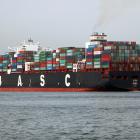"The Nature Conservation Movement in Post-War Japan"
This paper explores the social and political factors that historically limited the national nature conservation movement’s influence in Japan, and outlines recent developments which may lead to both a greater emphasis on the greater participation of non-governmental organisations in the political process, and a greater emphasis on the protection of the natural environment.













